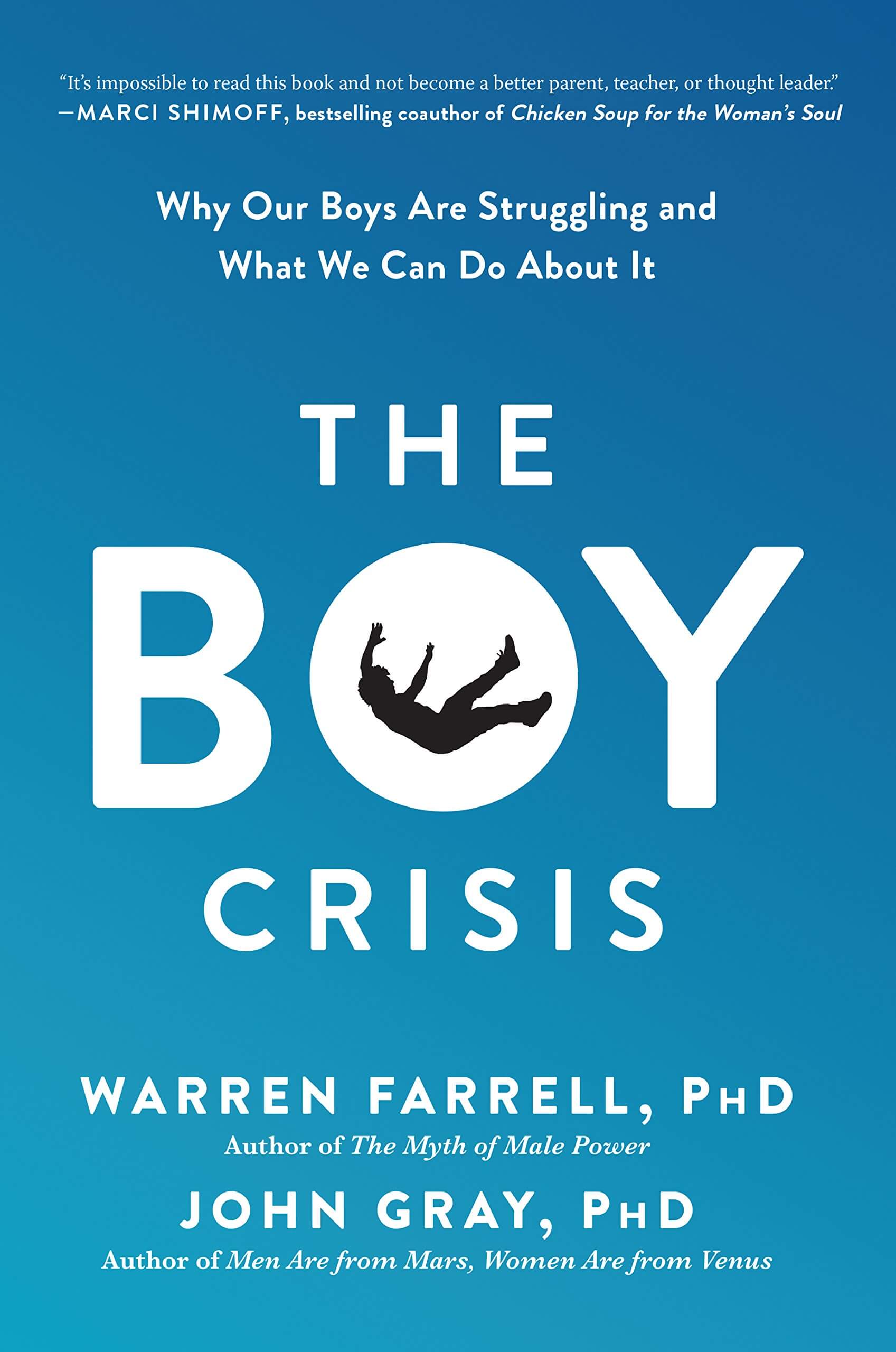You can find this and many other discussions on our free podcast, Everyone Is Right. Subscribe and share!
Become a member or log in to listen to the full 3-hour conversation.
Warren Farrell and Ken Wilber take an in-depth look at the many social, cultural, and psychological challenges that young boys are facing today, while noting how many of these challenges are the products of well-intentioned — but often misguided — feminist praxis.
Not that feminism is inherently hostile to men. Far from it. As Warren notes in his book, many prominent feminist leaders over the decades have understood the critical role that fathers play in their children’s development and psychological well-being. He quotes Gloria Steinem, who famously said, “what the world needs now is more women at work and more dads at home”. He also recalls Betty Friedan’s popular book, The Second Stage, which was a call for men to consciously begin the same process of self-liberation and redefinition of their identities and roles that women have struggled with over the last century — going so far to say that the major goals of feminism can never be fully attained if men are not also engaged in an equivalent praxis on their side. As the saying goes, if you only row the boat with one oar, you’re just going in circles.
As the era of #MeToo continues to put a spotlight upon the many inertias, indignities, and injustices that women face in the public sphere, Farrell and Gray are bringing some much-needed attention to the inertias, indignities, and injustices that men are experiencing in the public and private spheres, and in their private lives.
“We have seven federal offices of women’s health, and zero federal offices of men’s health. Can you imagine the sexism that we would accurately be accused of if women died five years earlier than men, and died earlier of 14 out of 15 of the leading causes of death, and we had seven offices of men’s health, and zero offices of women’s health? It’s not conceivable that that would be the case. Yet that is the case. And more potently, no one is protesting it, and very few people even know about it.”Warren Farrell
This critical discussion helps us better understand the enormous anxieties and rates of depression that many men are facing today, resulting in men committing suicides 350% more often than women. Men have traditionally been regarded as “disposable heroes” by society — as Warren often says, a man has classically demonstrated his value to the family by being away from the family, i.e. earning money. And when the “hero” side of that equation gets deconstructed by extreme feminism, men are left only with their disposability. When men are surrounded on all sides by messages they are inherently biased, privileged, toxic, and unconscious participants in all kinds of social evils, they are left with no solid ground to stand upon in terms of their identity — the lack of a strong “men’s movement” results in a lack of resilience when their traditional identities are dismantled, which leads to increased fragility, increased desperation, and yes, increased toxicity. Which means that the praxis that is most critical of “toxic masculinity” — extreme feminism — is itself partly responsible for creating that toxicity in the first place.
Power and powerlessness both lay at the heart of our ongoing cultural discussion of equality among the sexes. Too often we perceive this as a somewhat binary distinction — one group as the oppressor, the other as the oppressed — and thus one gender’s power tends to be defined by another group’s powerlessness. But there is much more to this story: both men and women experience power and powerlessness, and no single gender has a monopoly on oppression. Or, as Warren Farrell often points out, “the weakness of men is the facade of strength, while the strength of women is the facade of weakness.”
Just as the industrial age helped create the conditions allowing for women to move en masse into the public sphere, challenging and overcoming and transforming the cultural inertia of previous generations, perhaps the information age will afford men a similar opportunity, as new technologies like automation will force men to redefine their identity in relation to things like work, career, and money, and to hopefully confront and liberate themselves from the deeply harmful legacy of disposability and detachment that has come to define men’s roles in culture and society.
Written by Corey deVos
Image by Jeff Lieberman
Reflections
- As a man, describe a time you have felt powerless based solely upon your gender. How did you confront and/or overcome this feeling of powerlessness?
- As a woman, describe a time you have felt powerless based solely upon your gender. How did you confront and/or overcome this feeling of powerlessness?
What is the Boy Crisis?
 It’s a crisis of education. Worldwide, boys are 50 percent less likely than girls to meet basic proficiency in reading, math, and science.
It’s a crisis of education. Worldwide, boys are 50 percent less likely than girls to meet basic proficiency in reading, math, and science.
It’s a crisis of mental health. ADHD is on the rise. And as boys become young men, their suicide rates go from equal to girls to six times that of young women.
It’s a crisis of fathering. Boys are growing up with less-involved fathers and are more likely to drop out of school, drink, do drugs, become delinquent, and end up in prison.
It’s a crisis of purpose. Boys’ old sense of purpose—being a warrior, a leader, or a sole breadwinner—are fading. Many bright boys are experiencing a “purpose void,” feeling alienated, withdrawn, and addicted to immediate gratification.
So, what is The Boy Crisis? A comprehensive blueprint for what parents, teachers, and policymakers can do to help our sons become happier, healthier men, and fathers and leaders worthy of our respect.

Become a member to access the full episode
Start building your big picture mind & support the global emergence of Integral consciousness

“Integral Life is the most important and globally-relevant platform for the leading edge of Integral consciousness evolution”
– Eugene P.
About Warren Farrell
Dr. Warren Farrell is the author of many books, including two award-winning international best-sellers, Why Men Are The Way They Are and The Myth of Male Power. His most recent books are Women Can't Hear What Men Don't Say, which is a selection of the Book-of-the-Month Club, and Why Men Earn More, which is about how the gap in pay between men and women really isn't discrimination and how women can earn more.
About Ken Wilber
Ken Wilber is a preeminent scholar of the Integral stage of human development. He is an internationally acknowledged leader, founder of Integral Institute, and co-founder of Integral Life. Ken is the originator of arguably the first truly comprehensive or integrative world philosophy, aptly named “Integral Theory”.

